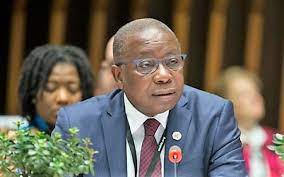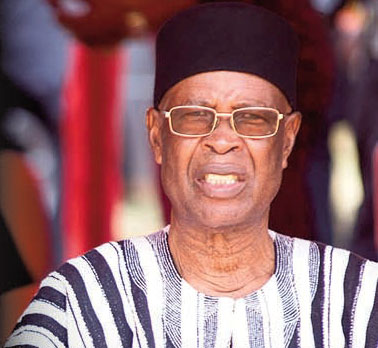New Doctors Finally Accept Postings To Deprived Areas

The Minister of Health, Kwaku Agyeman-Manu, has revealed that some 110 doctors have accepted postings to deprived and underserved areas across the country.
It follows the advertisement of vacancies in these hospitals by the Ghana Health Service (GHS) after financial clearance was given to the ministry.
Mr. Agyeman-Manu, who was in Parliament to answer a question posed by the Member of Parliament (MP) for the Builsa South Constituency, Dr. Clement Apaak, said the exercise is being done for various hospitals.
“Mr. Speaker, in the meantime, we have started advertising vacancies in various hospitals to recruit and fill these vacancies with financial clearance issued to the Ministry of Health.
“This exercise has started in earnest and by yesterday, the report I got from the Ghana Health Service Director General was the fact that close to about 110 of these young doctors have accepted to take positions in areas that are supposed to be deprived after we had declared vacancies,” the sector minister said on the floor of Parliament.
The Builsa South MP had earlier submitted a question wanting to know when medical doctors would be posted to deprived areas and measures to ensure that these health professionals stay to work.
“I rise to ask the Minister for Health what steps the Ministry is taking to ensure that medical doctors posted to deprived parts of the country take up their postings?”
Coming from a very deprived area in the Upper East Region, Dr. Apaak decried the phenomenon of health professionals most times not reporting to these areas at all, disclosing that, last year alone, some 10 doctors were posted to the region, but none showed up.
This year, he said, only five of these doctors reported to the hospitals.
“I appreciate the minister’s response, but in all of his narration he has given, he has not been able to give a firm time line with regards to when this policy directives are going to be implemented because as we speak, it’s a practical reality where for example in the Upper East Region, last year all the 10 doctors posted there, not even one took up the position and this year only five.
“So can the minister give us a response that indicates that something is being done, even as they are looking at unfolding these elaborate policy measures,” he disclosed.
The minister, who, in the early part of his submission, gave portions of elaborate measures under way to solve the perennial issues of health professional rejecting postings to rural and deprived areas, said they are on course to implement the measures to permanently deal with the situation.
He could however not tell when the entire process will commence fully because he explained a lot of the actions to be taken do not end with him.
“After receiving the consultant’s report, we are validating this report, after which I will send the memo to Cabinet and that will continue the process. All the time and all the activities are not controlled by me. Some of them are exogenous, outside my environment. And like I said I will come even to Parliament.
“It will depend on when we finish our validation, get my cabinet memo done and approve and I will come to Parliament for acceptance of what we have agreed up then we start the roll out,” the minister said.
Mr. Agyeman-Manu, who is also the Dormaa Central MP, noted that, in the last few years, policy initiatives and interventions to attract and retain health workers to these areas have not curtailed the situation, saying this has the potential to undermine the healthcare delivery in these areas and the overall attainment of the universal health coverage.
As a result, the sector minister said the more elaborate measures are under way to attract health professionals to these areas.
“A policy shift to improve process for the development and the implementation of actions that response to current and forthcoming health medical challenges in deprived and underserved areas has been advocated at several levels.
“One of the labels of advocacy for this is the enactment of the national human resource for help policy and strategies which was launched in January 2021 to provide a policy direction in managing human resources issues in the health sector.
“Key among these thematic areas is objective 33 of the policy which states and I quote ‘to develop and institute mechanisms to ensure and retention of the health workforce to serve in deprived or underserved locations and facilities’,” he said.
The Dormaa Central MP added “The Ministry of Health with financial and technical support from the World Health Organization and health system strengthening accelerated sought to explore the factors that influence doctors and other health professionals to accept postings to deprived locations and facilities in the country. To ensure that the ministry identified the right factors the services of consultant a human resources of steering committee and technical working group were engaged.
“A survey has been conducted to solicit the views of health workers on measures to attract and retain to work in deprived areas. From the survey, willingness to accept of health workers to accept posting to these deprived areas is based on the following financial and non-financial incentives.”
“The survey which is being studied for onward implementation suggested that non-financial incentives among others such as scholarship, residential accommodation, standard medical equipment and transfer after three to five years of service upon request be made available to health professionals who accept posting to these areas.
“On the financial incentives, the survey recommended that 34 percent of basic salary should be granted as incentives as mild deprived areas, 38 percent of basic salary as incentive allowance for moderate deprived areas, and 40 percent of basic salary as incentive allowance for severe areas.”
He said, as a follow-up to the survey, a technical review workshop is underway to review the various options that emerged from the survey and cause the financial incentive package that was proposed.
“For the next step, we are considering the validation of the derived districts at the regional levels, the conduct of validation meetings with stakeholders to recommend the policy options at the cost of the incentive package place of a cabinet memo and the submission of this cabinet memo for consideration.
“Finally, Mr. Speaker, we will consider a parliamentary approval for the findings to assist implementation of this incentive package. It is hoped that this will help ensure that medical doctors and other professionals accept postings to deprived and underserved areas in order to attain the goal universal health coverage,” he said.
Source: Anchorghana




